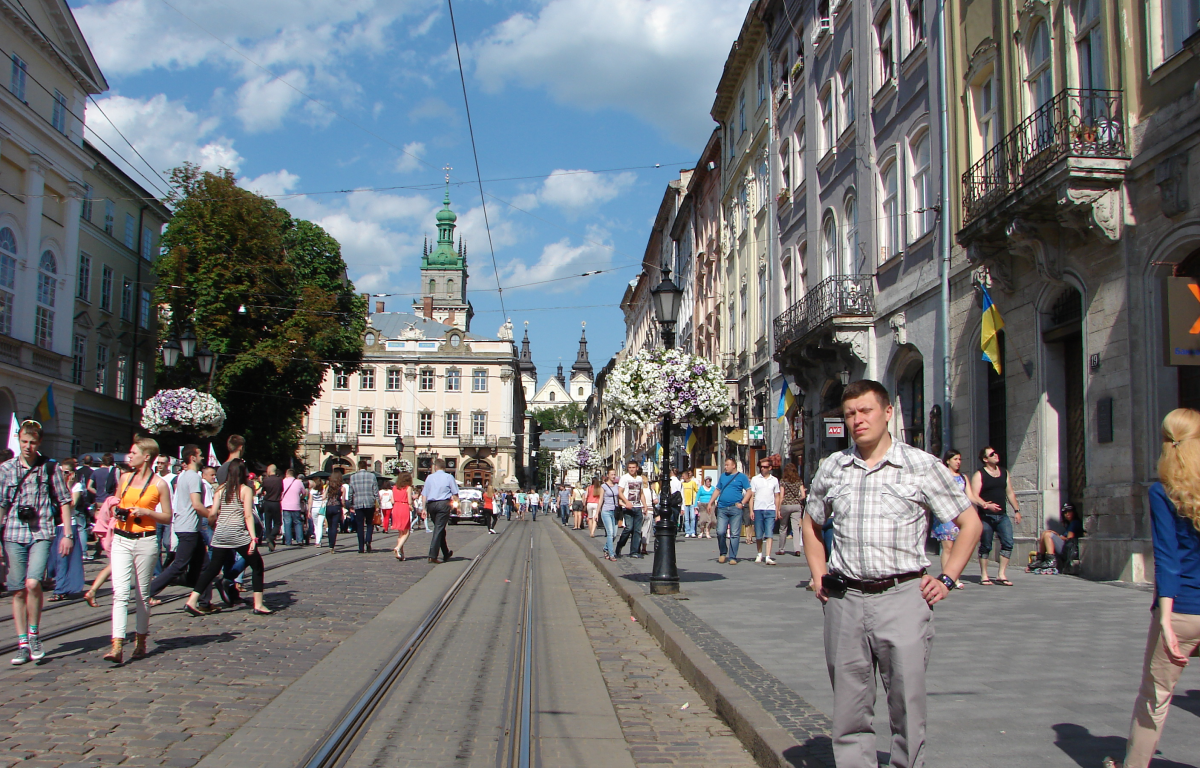CLARKSVILLE, TN (CLARKSVILLE NOW) – Nearly a month has passed since Russian forces descended on Ukraine. For Americans with Ukrainian heritage, such as Austin Peay State University physics professor Roman Golovchak, the situation is personal and painful.
“People are scared. I talked to my relatives in Ukraine, and my wife’s relatives are also in Ukraine,” Golovchak said, adding that some of his wife’s relatives are in the capital of Kyiv, where much of the violence has been happening. “The situation there is really, really difficult.”

Growing up in USSR
Golovchak was born in 1975 in the Lviv region of Ukraine in a city called Ftryj, where his parents and other relatives still live. He grew up in the Soviet Union before Ukraine became independent.
“It was very hard times after the Second World War,” Golovchak told Clarksville Now. “It was a pretty normal life there, but there were some restrictions, like you couldn’t say anything about the Communist Party,” Golovchak said.
The knowledge he received in school about Ukraine’s history was limited because teaching it was forbidden. Golovchak said students in Ukraine had to learn in both Russian and Ukrainian.
It was hard to make purchases because, for most things, there was a waitlist. He said most of the money the Soviet Union was making at the time went to their military.
Ukraine became independent after the fall of the Soviet Union in 1991.
“Starting from 1991 until about 2000 roughly, it was a really hard time because of hyperinflation,” Golovchak said.
Golovchak came to the United States in 2011, and has been at Austin Peay since 2013. He has tried to go back to Ukraine every summer with his family.

Russian invasion
On Feb. 24, Russia launched the invasion.
“I remember the day that I was reading the news and I saw that Russians at 5 in the morning started bombing the peaceful cities. They claimed they hit military infrastructure,” Golovchak said.
It’s a painful split for the people, many of whom have conflicting loyalties. Some Ukrainian citizens feel more connected to Russia, while others feel connected to Europe.
“It’s like you’re living with your roommate in one apartment when suddenly the roommate decided to (take over) the kitchen and ban you from the entrance,” Golovchak said.

Golovchak hasn’t been able to get in contact with some of his relatives.
“They have no power, no food, no water,” he said. “They cannot leave because Russians will shoot them. They shoot those who want to leave the city.
“The Drama Theatre was bombed recently, and that was a shelter for women and children. They had a huge sign that said ‘children’ that you could see from the air,” Golovchak said.
He said citizens in Russia are not being given the truth by Russia’s government-controlled media.
“Right now, ordinary Russians don’t know what’s going on in Ukraine because they have no access to the information. All they read is that it is a special operation and that Ukrainians are happy to see Russian forces and they’re met with flowers and salutations.
“They fake everything. They fake politics, they fake history,” Golovchak said.
“I have a friend whose daughter is in Kharkiv, and they are living in bomb shelters most of the time. This is really hard because you never know which building will be the next,” Golovchak said.
Despite the grimness of the situation, Golovchak still has hope.
“It’s really hard to defend and to fight. But still, our defenders are doing a pretty good job.”
Local organizations have banded together to gather donations for Ukraine and its citizens. Relief efforts are ongoing.


